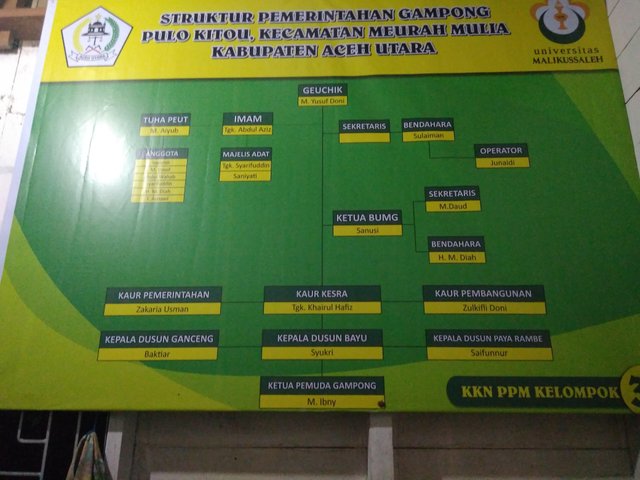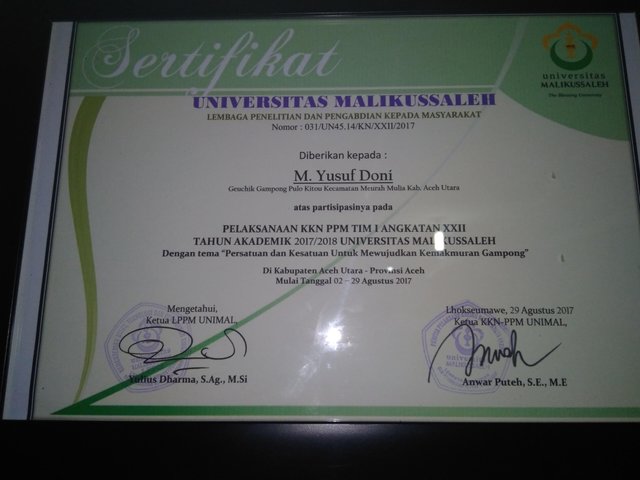Center imege

=Villages are traditional villages and villages or called by other names, hereinafter referred to as Villages, are legal entity units with territorial boundaries for governing and administering government affairs, local community interests based on community initiatives, origins, and / or traditional rights which is recognized and respected in the system of government of the Unitary State of the Republic of Indonesia.Camat or other designation is a subdistrict leader who is under and responsible to the regent / mayor through the secretary area. Village Government is the implementation of government affairs and interests of local communities in the system of government Unitary State Republic Indonesia Regional Financial Management Officer hereinafter abbreviated as PPKD is the Head of the Regional Finance Management Unit which has the task of carrying out the APBD management and acting as the general treasurer of the region. The Village Government is the village head or called by another name dibant u village apparatus as an element of the village administration. Village Head or other designation is a Village Government official who has the authority, duties and obligations to conduct the Village's household and perform the duties of the Government and Local Government. The Organizational Structure and Administration of Village Governance is a system within institutional arrangements in duties and functions and working relationships.
Center imege

=Basic principles
In line with the paradigm shift, KKN-PPM is implemented based on the following principles:
Integration of Tri Dharma Higher Education aspect; aspects of education and teaching, and community-based research services have become the foundation for planning, implementing and evaluating KKN-PPM.Empati-Partisipatif; KKN-PPM is implemented to mobilize the community in development through 10 various activities that can involve, engage, and foster a sense of community ownership of development. KKN-PPM is conducted interactively and synergistically between students and society. Consequently, the involvement of both parties in every activity is absolutely necessary. The involvement started from the planning of field activities, implementation, and funding. For that students and managers KKN-PPM should be able to make a socio-cultural approach to the community so that more cooperative and participatory.Interdisipliner; KKN-PPM is implemented by students from various disciplines within the university and its implementation is coordinated by LPPM. In its operation students develop mechanisms of mindset and interdisciplinary work patterns to solve existing problems in the location of KKN-PPM.Comprehensive-Complementative and broad dimension; KKN-PPM functions as binding, summarizing, adding and complementing the existing curriculum. It is expected that KKN-PPM students are able to actualize themselves professionally and proportionally. Realistic-Pragmatic; planned program activities are basically based on real needs and problems in the field, can be implemented in accordance with the carrying capacity of available resources in the field, and provide benefits for the community, both in the short and long term.Environmental development; KKN-PPM is implemented to preserve and develop the physical and social environment for the common good.
Based on these principles, it is expected that KKN-PPM students can identify the problems that exist in the community and seek solutions according to their own resources. With the hope, people are able to berswadaya, berswakadelola, and berswadana in development.
Principles of Implementation
Co-creation: KKN-PPM is implemented based on a theme and program which is a shared idea between universities (lecturers, students, Study Centers) with Local Government, partners and local communities.Co-financing / co-funding (collective funds): KKN-PPM is implemented by co-financing between implementing students, universities with local government, partners and local communities, tailored to agreed themes and programs. Flexibility: KKN-PPM is implemented based on a theme and programs appropriate to the situation and needs of local governments, partners and communities in the development process in the region. Students can choose the theme and time of KKN-PPM implementation offered by the university according to their wishes. Sustainability: KKN-PPM is carried out continuously based on a theme and program that is suitable with specific place and target. KKN-PPM is based on research Community Services). The KKN-PPM program applies sustainability principles to achieve planned results and strives to make continuous improvements in order to improve the quality of the KKN-PPM program (continually improvement)
seta
Copyright © 2013 LPPM Gadjah Mada University
Front
RSS Feeds
Site Map